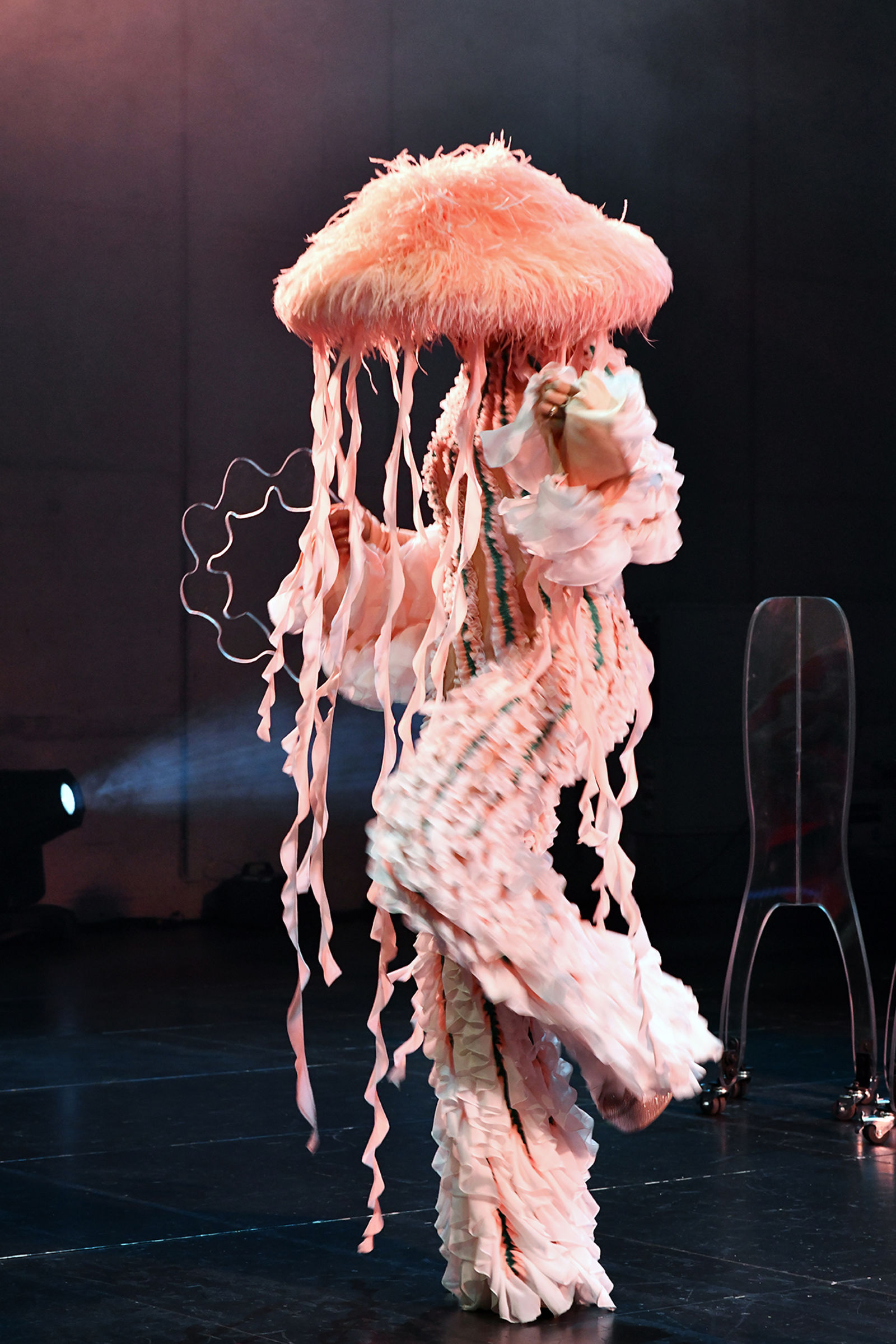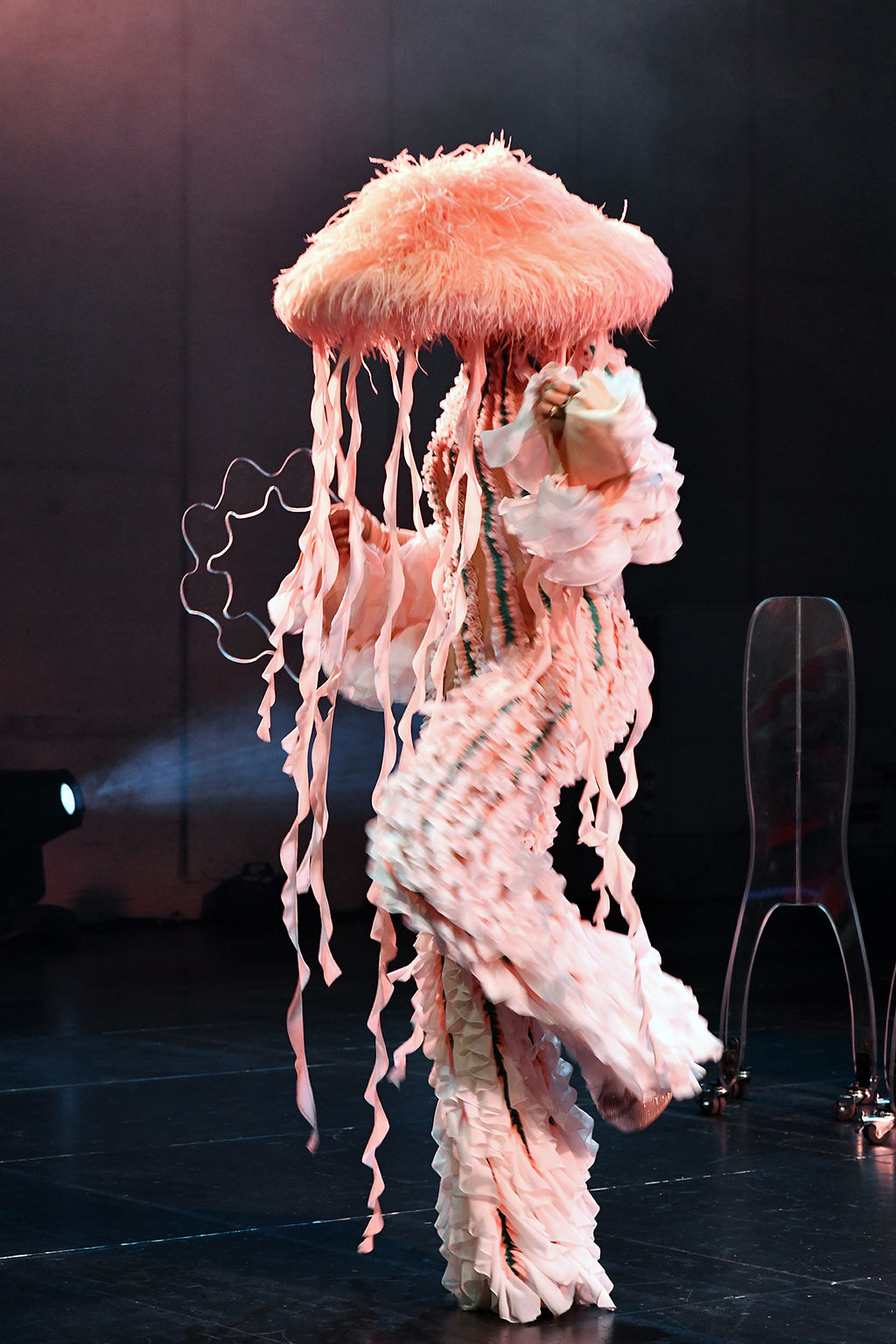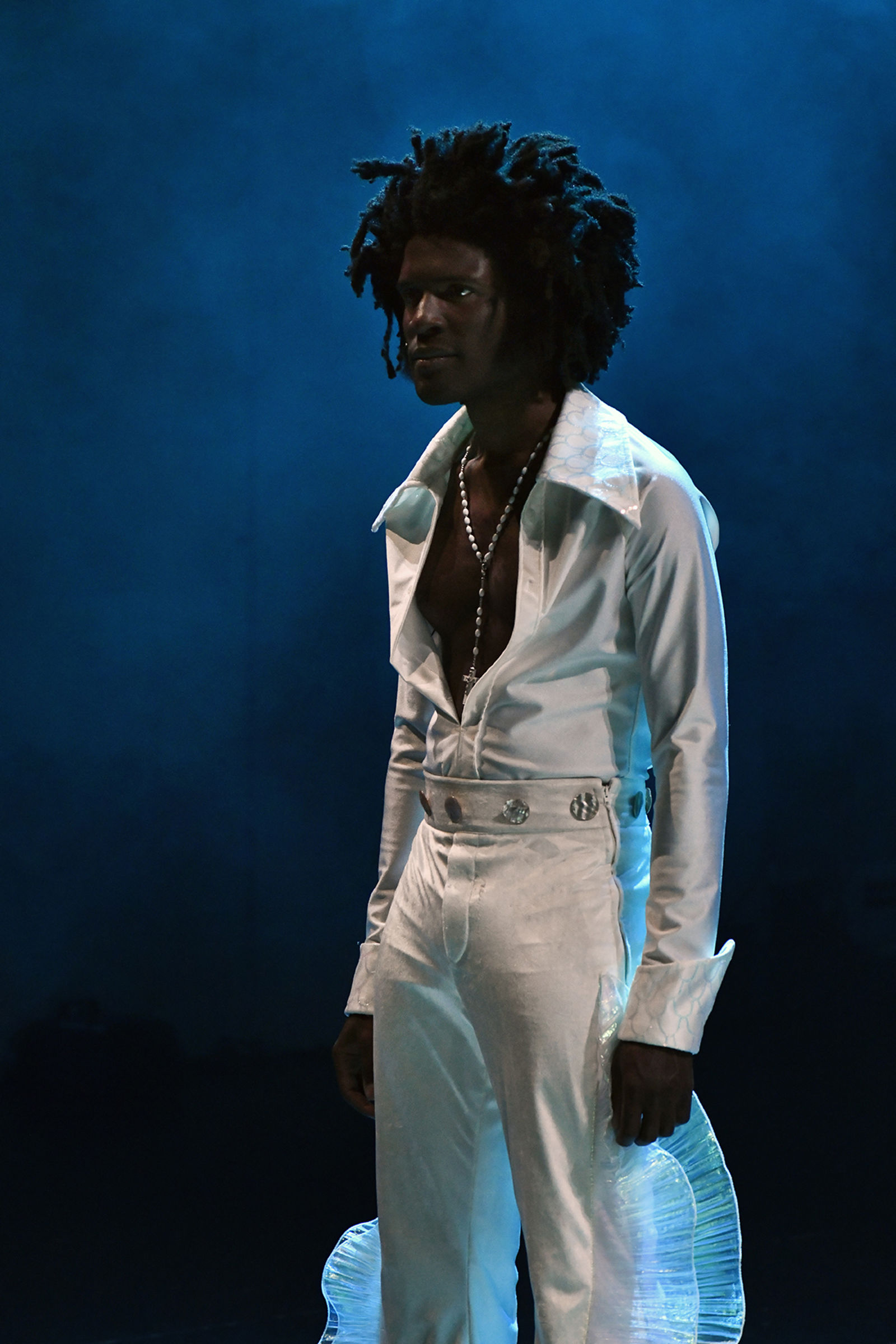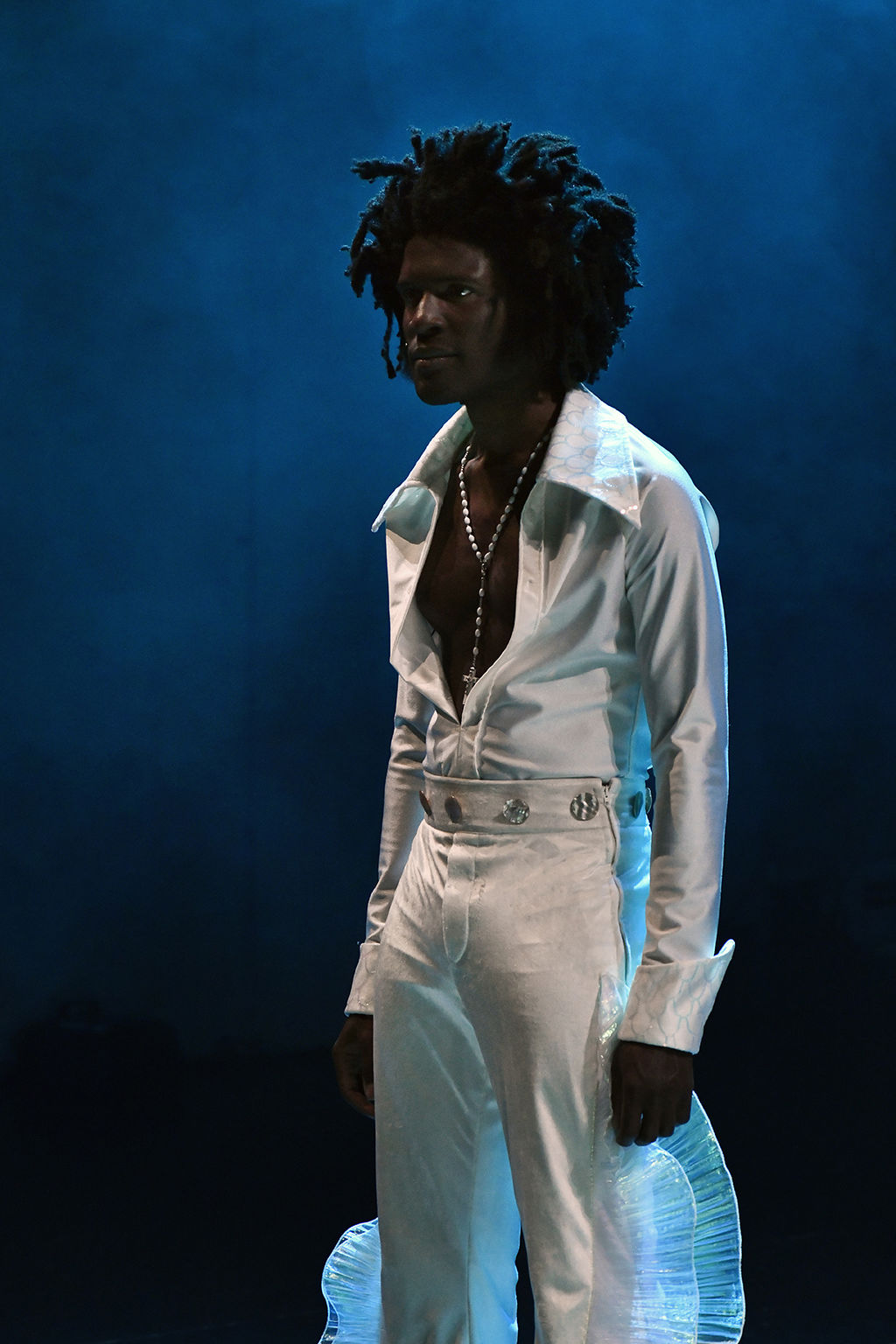Last Night a DJ Took My Life
About this Evening
Her voice shaped the hooks of an entire generation. Lori Glori became a Eurodance legend in the 90s. Joana Tischkau now brings the Californian-born singer's life story to the stage in the form of a musical. From her first appearances with the gospel band the HAM Sisters, to her performance with Bill Summers & Summers Heat on the US programme Soul Train, to her time as a background and lead singer in various Eurodance productions in Germany. It was there that an event took place that would determine the rest of her life. This collaboration and its consequences tell the story of a personal destiny and a tragic chapter in the European music industry. How do you make your voice heard when someone else has more power, when your own voice wasn't loud enough? Is there a path to justice? Joana Tischkau's work deconstructs cultural appropriation, questions of authorship and authenticity. She exposes the moments when a supposedly authentic origin can no longer be clearly defined and examines the European understanding of Blackness and Black culture. At the Schauspielhaus Zürich, the director and choreographer, together with the ensemble and Lori Glori herself, are staging Lori's story as a fantastical musical memoir.


- Staging, Choreography
- Joana Tischkau
- Stage design
- Carlo Siegfried
- Costume design
- Nadine Bakota
- Sound Design & Composition
- Frieder Blume
- Songwriting & Script
- Fatima Moumouni / Fehler Kuti / Joana Tischkau / Ensemble
- Video
- Sondi
- Light
- Markus Keusch
- Outside Eye
- Elisabeth Hampe
- Dramaturgy
- Laura Paetau
- Audience Development
- Laura Rivas Kaufmann
- Touring & International Relations
- Sonja Hildebrandt
- Artistic Mediation T&S
- Manuela Runge
- Production Assistance
- Sarah-Maria Hemmerling
- Stage design assistance
- Lioba Bangert
- Costume design Assistance
- Jana Zürcher
- Intern Audience Development
- Selma Jamal Aldin
- Production intern
- Anne-Kathrin Hartmann
- costume design intern
- Claudia Lou Roth
- Dramaturgy intern
- Aina Aliotta
- Inspection
- Aleksandar Sascha Dinevski
- Soufflage
- János Stefan Buchwardt
About this Play
Let the Dream Come True!
Lori Glori
Watch And You'll See, Someday I'll Be Part Of Your World.
The Little Mermaid, 1989 and 2023
Last Night a DJ Took My Life tells a fictionalised version of the life story of Lori Glori (née Ham) and the music history of the 70s, 80s and 2000s. Staged as a musical, the stages of Lori's life are also interwoven with Hans Christian Anderson's fairy tale The Little Mermaid and the corresponding Disney adaptation. Like Arielle, Lori's story is about wanting to explore an unknown but hopeful territory (Europe) and paying the price of losing her own voice. The ensemble of the Schauspielhaus Zürich appears as, more or less, conceptual figures. Lori Glori appears as The Voice, the voice of many voices; Emeka*Ene as The Dream, the hope, the American dream, and also a man in Lori's life; Lukas Vögler as The Producer, representing the white male producer in the music industry, who knows for a fact that people also listen with their eyes; Yèinou Avognon as The Fan, is a fan of everything and above all of themselves; Vincent Basse as Bobo, a pirate who sails the oceans of music with more diligence than talent; Sophie Yukiko as The Dancer, the playback-singing background dancer, the wife at Bobo's side and the white body to the stolen voice; Sasha Melroch as The Moral, raising questions of law and justice while simultaneously hosting a rave and the ensuing dispute over the copyrights to Lori's melodies.
Joana Tischkau's work explores cultural appropriation, questions of authorship, authenticity and originality. Her aim is to visualise and deconstruct how cultural appropriation is usually discussed in the German-speaking world in terms of "allowed or not allowed". She wants to make visible the real entanglements, i.e. the moments in which an origin or an authentic moment can no longer be clearly defined. Her artistic work is guided by theory and is based, among other things, on the postcolonial thinker Homi Bhabha, who writes: "Culture itself is an act of citation." Culture itself only functions through quotation. The director and choreographer's work is largely characterised by the use of quotations as alienated texts, music and movement material. Her artistic work is guided by the question of how to deal with quotations and the resulting creation of new cultural products that live only from these quotations. Joana Tischkau radically questions authorship and supposed authenticity:
"What happens to the demand for authenticity and what does that mean for my idea of being Black? As a Black German person, I have been confronted with a multitude of projections and ideas of Black bodies. But how we understand Black bodies or Black culture in Europe is something fundamentally new, something undefined, namely a certain (European) understanding of Blackness, which is also inspired by the cultural productions of a Black US-America, but has often taken on new forms in the error-prone process of translation – I am interested in working this out."
Tischkau calls it a "dyslexia in cultural understanding". In her works, the director is concerned with approaching and becoming more eloquent about what is genuinely Black and German, or Black and Swiss. The Eurodance movement of the 90s was also born out of a desire for Black culture. Lori Glori symbolises a figure who navigates between these worlds, whether she wants to or not. Her body operates in the in-between of a Black culture and a white majority society, represented in the production by the world under water and on land. She is inevitably a translator between worlds. The production oscillates between the tragedy of a real-life story and a humorous tale about the era of the Love Parade and MTV. But in 1991, while ravers in Berlin were dancing to acid techno under the slogan 'My House Is Your House And Your House Is Mine', which originated in the predominantly Black city of Detroit, neo-Nazis in Hoyerswerda were attacking a hostel for contract workers and a refugee centre with rocks and Molotov cocktails. The riots were the prelude to a series of attacks and pogroms in the 1990s.
Joana Tischkau's production exposes the real racism that exists, both then and now. Her examination of cultural appropriation within the Eurodance scene goes deeper than simply labelling it as racist. She uncovers layers of meaning, burrows into a complex context and ultimately asks whether an ethically just consumption of music is even possible. What might the future of a capitalist music industry look like? Debates about cultural appropriation and (anti-)essentialism are ubiquitous in pop culture. There is no pop culture without cultural appropriation. The battles fought here are actually proxy battles over power and distribution issues. Lori Glori's story is also about power and powerlessness in the capitalist music industry. We will see whether Lori Glori experiences empowerment at the end of Joana Tischkau's production – somewhere between fiction and reality.



Ad

Ad

Ad

Ad





